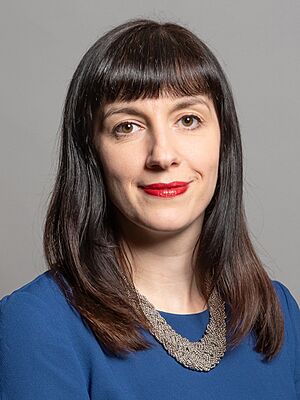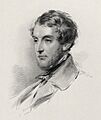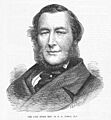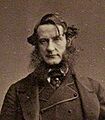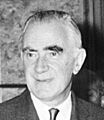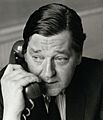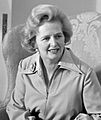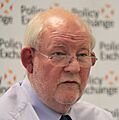Secretary of State for Education facts for kids
The Secretary of State for Education, often called the Education Secretary, is a very important government official in the United Kingdom. This person is in charge of the Department for Education, which handles all things related to schools, colleges, and learning in England. They are also a key member of the Cabinet, a group of senior ministers who help the Prime Minister make big decisions for the country.
The Education Secretary works closely with other ministers in the Department for Education. There's also a "shadow" Education Secretary from the main opposition party who watches what the Education Secretary does and suggests different ideas. A special group of politicians called the Education Select Committee also checks the work of the Education Secretary.
The person currently holding this job is Bridget Phillipson.
Quick facts for kids United KingdomSecretary of State for Education |
|
|---|---|
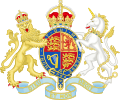
|
|
| Department for Education | |
| Style | Education Secretary (informal) The Right Honourable (within the UK and Commonwealth) |
| Member of | |
| Reports to | The Prime Minister |
| Seat | Westminster |
| Nominator | The Prime Minister |
| Appointer | The Monarch
(on the advice of the Prime Minister)
|
| Term length | At His Majesty's Pleasure |
| Formation |
|
| First holder | William Cowper-Temple (as Vice-President of the Committee of the Council on Education) |
| Salary | £159,038 per annum (2022) (including £86,584 MP salary) |
| Website | www.gov.uk |
Contents
What Does the Education Secretary Do?
The Education Secretary's main job is to look after education in England. This includes many different areas, from young children starting school to adults learning new skills.
Key Responsibilities
Here are some of the main things the Education Secretary is responsible for:
- Early Years: Making sure young children have a good start in nurseries and pre-schools.
- Children's Social Care: Protecting and supporting children who need help.
- Teachers: Ensuring there are enough good teachers and that they stay in their jobs.
- National Curriculum: Deciding what children learn in schools across the country.
- School Improvement: Helping schools get better and offer high-quality education.
- Academies and Free Schools: Overseeing different types of schools that have more freedom.
- Further Education: Supporting colleges and training for people after school.
- Apprenticeships and Skills: Helping young people learn practical skills for jobs.
- Higher Education: Looking after universities and student life.
- School Buildings: Making sure school buildings are safe and modern.
How the Role Changed Over Time
The role of the Education Secretary has changed a lot over the years. It started small and grew into the important job it is today.
Early Beginnings
In 1839, a special committee was set up to manage government money for education. This committee included important people like the Lord President of the Council and the Chancellor of the Exchequer. In 1857, a Vice-President was appointed to lead this work.
Board of Education
In 1900, the committee was replaced by a new group called the Board of Education. This board was led by a President. At first, the President was also the Lord President of the Council, but later the roles became separate.
Ministry of Education
The Education Act 1944 brought another big change. The Board of Education became the Ministry of Education. This showed how important education was becoming to the government.
Education and Science
In 1964, the job changed again to the Secretary of State for Education and Science. This meant the person in charge also looked after science. A famous person who held this job was Margaret Thatcher, who later became Prime Minister.
Changes in Departments
Over the years, the department responsible for education changed names and responsibilities several times:
- In 1992, science was moved to a different department, and it became the Department of Education.
- In 1995, it merged with the Department of Employment, becoming the Department for Education and Employment.
- In 2001, employment responsibilities moved, and it became the Department for Education and Skills.
- In 2007, it split into two new departments: one for children and schools, and another for universities and skills.
The Modern Role
In 2010, the Department for Education and the job of Secretary of State for Education were created again. This brought many of the education responsibilities back together. In 2016, higher education was also reunited with the Department for Education, making the role responsible for almost all levels of learning.
One interesting fact is that Michelle Donelan was Education Secretary for only 35 hours in July 2022, making her the shortest-serving Cabinet member in British history!
Images for kids
 | Jewel Prestage |
 | Ella Baker |
 | Fannie Lou Hamer |


